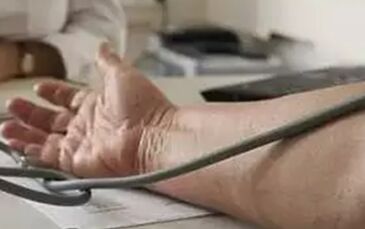万能供血王——O型血更抗雾霾!
A study of 14 years of patient data from the Intermountain Medical Center Heart Institute in Utah, US, found that the risk of a heart attack or chest pain doubled for people of type A, B, or AB blood when pollution hits high levels.
美国犹他州山间医疗中心心脏科做了项实验,14年中通过收集病患数据,发现当污染严重时,A型血、B型血和AB型血的人患心脏病和胸痛的几率会翻倍。
In contrast the risk rose only rose by 40 per cent for those with type O.
然而,O型血的人患病几率只增加了40%。

"The association between heart attacks and pollution in patients with non-O blood isn't something to panic over, but it is something to be aware of,” said Dr Benjamin Horne, a clinical epidemiologist and lead investigator of the study from the Intermountain Medical Center Heart Institute in Salt Lake City.
盐湖城山间医疗中心心脏科流行病临床学博士、实验首席调查员本杰明·霍因说:“非O型血病人污染严重时易患心脏病的情况并不值得恐慌,但是需要注意。”
“In the information we provide to our patients about pollution, we try to stress that they can do something about it to reduce their risks: Stay indoors out of pollution. Exercise indoors.”
“我们跟病人说明污染情况和心脏病的联系时,都会强调他们可以通过待在室内、在室内锻炼来降低风险。”
Air pollution in Britain is thought to contribute to around 40,000 early deaths a year, according to the Royal Colleges of Physicians and of Paediatrics and Child Health.
皇家医学院和儿科学院说,英国的空气污染每年致使4万多人寿命缩短。
Recent research by the World Health Organisation found that 44 major UK towns and cities now breach WHO guidelines on air quality with particulate levels so high they cause six million sick days each year.
世界卫生组织近期做了调查,发现英国有44个重要城镇违反了世界卫生组织对空气质量的规定,空气中颗粒浓度太高,每年因此生病的人生病总时长达六百万天。
Safe levels of air pollution are generally considered to be under 20 micrograms per cubic metre, but during levels of high pollution, the PM2.5 count - the measure of small particulates in the air - raise to around 60 micrograms per cubic metre. In London it has been known to rise to 197.
空气污染的安全水平为每立方米空气中颗粒物不超过20微克。但是高度污染时,每立方米空气中,PM2.5的数量为60微克。伦敦的PM2.5已经高达197微克。
The study found that for every additional 10 micrograms over 20, the risk to people with type A, B, or AB blood increased by 25 per cent, but only by 10 per cent for people with type O.
调查发现,在已有20微克颗粒的基础上,每增加10微克颗粒,A、B、AB型血的人患病几率就增加25%,O型血人只增加10%
Around 55 per cent of people are A, B, or AB and they are thought to be at greater risk of heart problems because their blood contains greater quantities of a clotting agent.
55%的人都是A、B、或AB型血,他们血液中的凝血因子含量更高,患心脏病的几率也就更高。